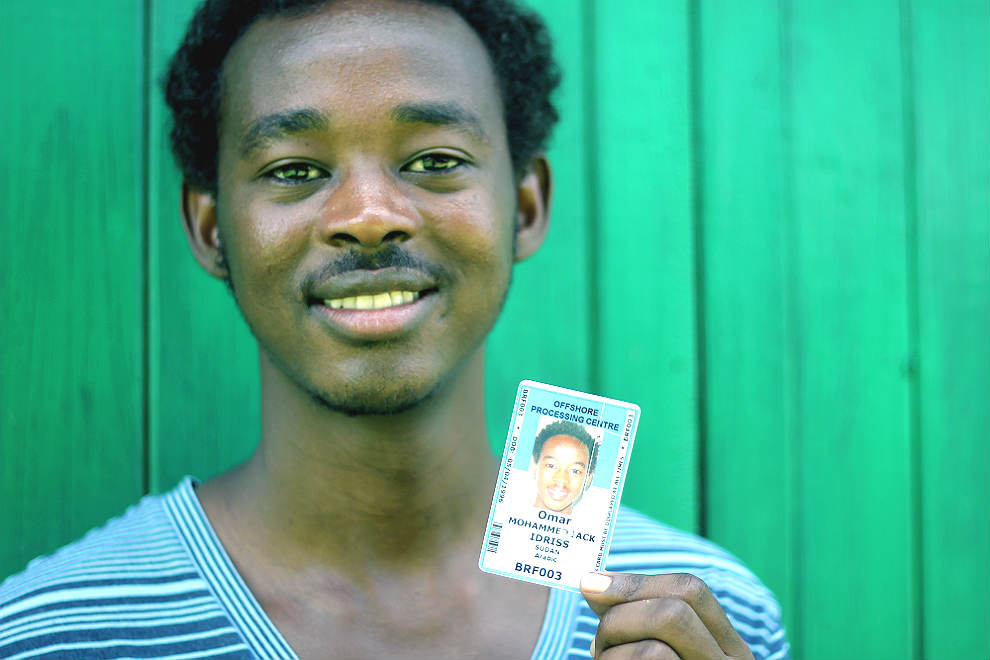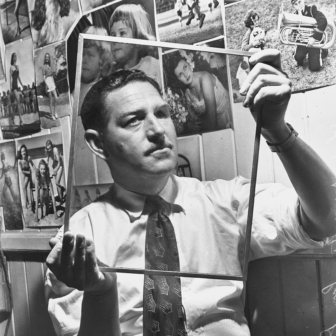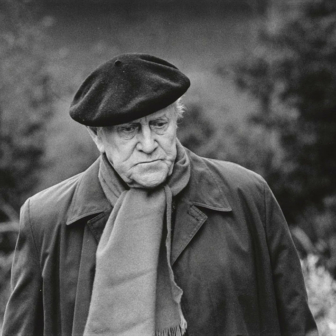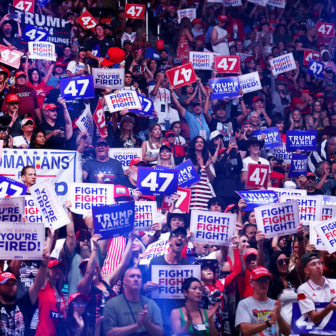Refugee policy is a national obsession; no day passes without a news story. But only very rarely do we read more than a short quote from the people in question. They Cannot Take the Sky is an oral history book made up of the stories of thirty-five people in immigration detention, from young children to adults with families of their own, collected by the Behind the Wire project. Each story was recorded over weeks or months, and the narrators were in control of the interview and collaborated in the editing process. The book is a record of Australia’s mandatory detention system from the point of view of the people it incarcerates. It is more than a record, however, and it is about much more than mandatory detention.
From They Cannot Take the Sky, this is the story of , the oldest child in his family, who was only seventeen when he left Sudan.
— Angelica Neville
Six of us are living in this room and the space is too small. I have a shelf – it’s a tiny one – above my bed. I have some books there, the books I borrow from the library. Every two weeks or three weeks, I return those books and then I borrow more. And also, I have some sheets that I printed from the internet which are about international law. I love to read, so sometimes I keep myself busy with reading those sheets I printed from the internet. They help me to know the meaning of international law, the history of it. Just basic information. I’m just warming up. I want to study law, hopefully, if I’m still alive one day.
I have three pillows in my bed. One, I put my head on, the other I put my legs on, and the third one I just hug. When I hug the pillow I sometimes like to pretend as if I’m hugging my girlfriend [laughing]. Ah! I mean, I’ve been here three years, how can I get a girlfriend? Yes, some people have girlfriends on Facebook, but I’m not living in Facebook relationships. Maybe they are using a different face, a different name? Maybe men can use a girl’s photos? It’s difficult to believe [laughing].
You know, I have sent too many emails to universities in Australia. I asked them for an online scholarship and I explained my situation: I’m living in the detention centre, and my financial situation is not perfect. I came here to Manus Island, 28 September 2013. I was seventeen. It was a hard decision, but we had no choice.
My name is . Jack? It is my grandfather’s name. Maybe they took it from the British in Sudan, a long time ago. I was born in a village called Kiskita. In 2013, war started in that area and we lost half of our family. We fled from that village to a big city, El Geneina, the capital of West Darfur. We came to a refugee camp called Riyad, where my family lives now. You know, Darfur is really big. The wars have lasted from 2001 until now.
Some people here are saying to me, “You are a leader.” I have a nickname from the guys, they call me Immigration. Why? Because when immigration staff brought us here, they just released us inside the camp and we found our rooms by ourselves. I was helping new arrivals to find rooms and beds. In camp, if you say Omar, not too many people know me. But if you say Immigration, they know me well. Because I’m trying to help people. Sometimes I like to talk politics, and some people are hoping one day I will become a minister of parliament. Even some people are calling me Minister.
I’d like to study instead of doing nothing. I want to study for my future. If you want to change something you have to learn. Education is light. You have to light your life, and you light other lives also. Do you know why I want to study law, and especially international law? Because I want to work with international organisations, like Amnesty or UNHCR [the UN refugee agency]. I want to help, I want to help people. If I can’t help, just I want to tell the truth, about what is right and what is wrong. I am interested in law because I have confidence I can help my people. Yes, my English language is too slow, but I have ability to learn more. I believe.
My English teacher, David, advised me about scholarships and helped me to write the letter. And then I copied it onto my email, and sent it to several different universities, asking for scholarships for online study. I sent it to Melbourne Law School and Adelaide, and another university in Perth. Always law schools. I forget the names, but they all replied to me. The answer they told me was, “You do not have an Australian visa.” The first condition to apply for university, or to get a scholarship from an Australian university, is you need to have an Australian visa. And finally I gave up. They were telling me, “Just stay strong and get out of detention, and come here. If you get a visa in Australia, then we have many different organisations helping people to get scholarships.” Yep, I remember, but unfortunately I get nothing.
I think about my future – why not?
My family is still living in Riyad refugee camp. My mother is there and my brothers, but my father is in another country, Chad. Have you heard of Chad, bordering Sudan? My father also ran away, like me, ’cause of lack of safety. We are from the Zaghawa tribe. The people who killed most of our family, they are everywhere, and the camp is open. They can enter the camp at any time. You can’t guarantee your safety.
I’m the first child, the oldest. I spoke with them last Sunday. I call them every thirteen or fifteen days. They know my situation already. I just ask, “Are you okay?” And they ask me, “Where are you?” The same question, every time. Same answer. I’m still in the camp, same as them and I don’t know my future. I tell them that I’m okay. In fact I’m not okay, I’m not feeling good, but I tell them I’m okay. The oldest son should look after his parents and brothers. You help them and if the financial situation is not perfect, you should sacrifice to get a job and help them. They need my help.
Sometimes I think back to my situation in Sudan and I know it’s not good to go back. I do other stuff to keep myself busy, sometimes studying English in my room, sometimes playing football. Sometimes I read books like Nelson Mandela’s – leaders like him, they were suffering a lot and then finally they got their freedom and they achieved their goals. When I look to those people, it’s kind of encouragement, you know, to survive.
When I am thinking a lot, I can’t sleep well. Some days when you feel good and happy you sleep early, and the other days will be totally different, especially when you hear some news coming out from the Australian government. The politicians, they know we will suffer. Every single word they use to describe us – it’s rumours, you know?
Nightmares start. I have nightmares, like action nightmares, people attacking people. Now we have memory problems, we can’t remember what happened yesterday, or last night. Our memories are not normal, they cannot record anything. I’m talking to you now, but maybe after a couple of hours I won’t remember what I said to you. I forget too easily, not like before. I worry about that, yes, of course – that maybe it’s getting worse, worse. Maybe one day we will lose our minds. I have seen a lot of people here lose their mind. They arrive normal, like you, but the situation makes them like that.
Yes, I think about my future – why not? Even the animals they need a future. Like anybody else, like any normal person, I need a future. I want to study and I want to help myself, my family, my people, people generally. Why not? Seeking asylum, that’s a crime? Under what kind of law? If you come by boat and sought asylum in Australia, you are guilty, yes? Why they don’t take us to the court if we are really guilty and we really are terrorists? I want Australian people to discover the truth by themselves. I believe in justice. •
They Cannot Take the Sky is published by Allen and Unwin.




